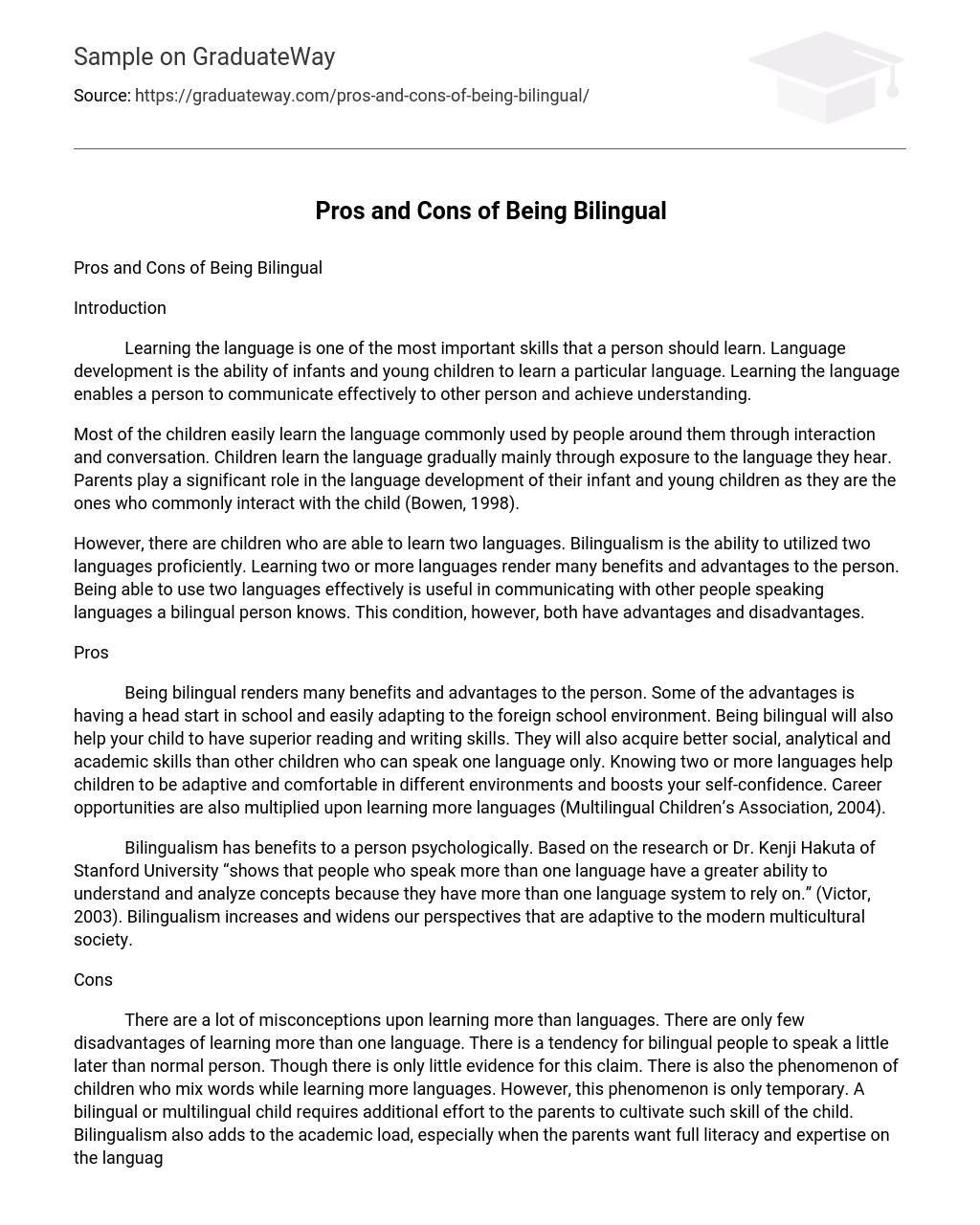Introduction
Learning the language is one of the most important skills that a person should learn. Language development is the ability of infants and young children to learn a particular language. Learning the language enables a person to communicate effectively to other person and achieve understanding.
Most of the children easily learn the language commonly used by people around them through interaction and conversation. Children learn the language gradually mainly through exposure to the language they hear. Parents play a significant role in the language development of their infant and young children as they are the ones who commonly interact with the child (Bowen, 1998).
However, there are children who are able to learn two languages. Bilingualism is the ability to utilized two languages proficiently. Learning two or more languages render many benefits and advantages to the person. Being able to use two languages effectively is useful in communicating with other people speaking languages a bilingual person knows. This condition, however, both have advantages and disadvantages.
Pros
Being bilingual renders many benefits and advantages to the person. Some of the advantages is having a head start in school and easily adapting to the foreign school environment. Being bilingual will also help your child to have superior reading and writing skills. They will also acquire better social, analytical and academic skills than other children who can speak one language only. Knowing two or more languages help children to be adaptive and comfortable in different environments and boosts your self-confidence. Career opportunities are also multiplied upon learning more languages (Multilingual Children’s Association, 2004).
Bilingualism has benefits to a person psychologically. Based on the research or Dr. Kenji Hakuta of Stanford University “shows that people who speak more than one language have a greater ability to understand and analyze concepts because they have more than one language system to rely on.” (Victor, 2003). Bilingualism increases and widens our perspectives that are adaptive to the modern multicultural society.
Cons
There are a lot of misconceptions upon learning more than languages. There are only few disadvantages of learning more than one language. There is a tendency for bilingual people to speak a little later than normal person. Though there is only little evidence for this claim. There is also the phenomenon of children who mix words while learning more languages. However, this phenomenon is only temporary. A bilingual or multilingual child requires additional effort to the parents to cultivate such skill of the child. Bilingualism also adds to the academic load, especially when the parents want full literacy and expertise on the language knew by the child (Multilingual Children’s Association, 2004).
Conclusion
The ability to speak and use more than one language is a skill that is beneficial to the person as it broadens the person’s perspectives that is needed in today’s multicultural and globalize society. Though there are only few disadvantages, it still relies on the desire of the parents to provide their children quality education and advantage on their school years and later in life.
Bilingual and multilingual children have more advantage over the monolingual ones. The additional effort the parents will render will give them a skill that they will be able to utilize for the rest of their lives.
References
Bowen, C. (1998). Speech and Language Development in Infants and Young Children. Retrieved April 27, 2009, from http://members.tripod.com/Caroline_Bowen/devel1.htm.
Multilingual Children’s Association. (2004). The Pros and Cons of Raising a Multilingual Child. Retrieved April 27, 2009, from http://www.multilingualchildren.org/getting_started/pro_con.html.
Victor, N. (2003, April). Bilingual at Young Age. SNN Student Magazine, 8.





